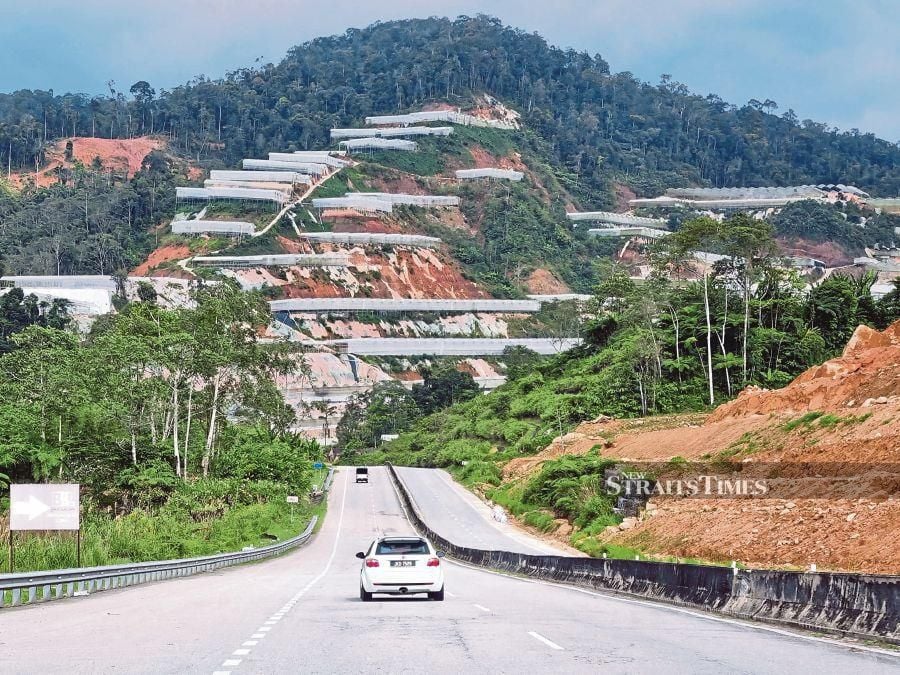GUA MUSANG: Four companies operating vegetable farms in Lojing Highlands here were served with stop-work orders for breaching Environmental Impact Assessment (EIA) regulations.
It is learnt that the orders issued early this month by the state Department Of Environment (DOE), were made after the department received various complaints from the public as well as a series of articles published by the New Straits Times over the past year.
Gua Musang DOE chief Zaharizam Johnny said the four were issued with the orders after they were found to have violated EIA regulations.
He said three of them were ordered to stop immediately while another was given a temporary stop-work notice.
"The company that was served with the temporary stop-work order was given a two-week notice to improve farming practices.
"These four companies were found to have set up their farms near the hill slope and.did not cover either their plants or their tents properly.
"This might trigger landslides, river pollutions and clogged drains," he told the New Straits Times.
Zaharizam said the four farmers planted various types of commercial vegetables, mostly cucumber and cabbage.
On another development, he confirmed that water from two rivers near Orang Asli settlements in Pos Hendrop and Pos Brooke were safe for consumption.
Zaharizam said this was based on the department's investigation on the rivers, Sungai Rengil and Sungai Ber.
"We went to the rivers and took water samples on March 6. The results showed that the rivers were safe for consumption.
"Therefore, the Orang Asli need not worry as they can use the water from the rivers without a need to undergo treatment," he said.
He said the result also proved that the two rivers were not polluted by the agricultural activities as claimed by the Orang Asli.
It was reported early this month that two more rivers here were found to be polluted following uncontrolled agricultural activities, which included vegetable farming in Lojing Highlands.
Both were located near the Orang Asli settlements in Pos Brooke and Pos Hendrop.
The Orang Asli community claimed that if the situation persisted, it might cause more serious impact to the environment including floods and landslides.
They also claimed the unchecked agricultural activities such as vegetable farming in Lojing Highlands had led to the two rivers being filled with mud and sludge and the situation had worsened during the rainy season.
The two rivers have been the Orang Asli's source of livelihood over the years.






